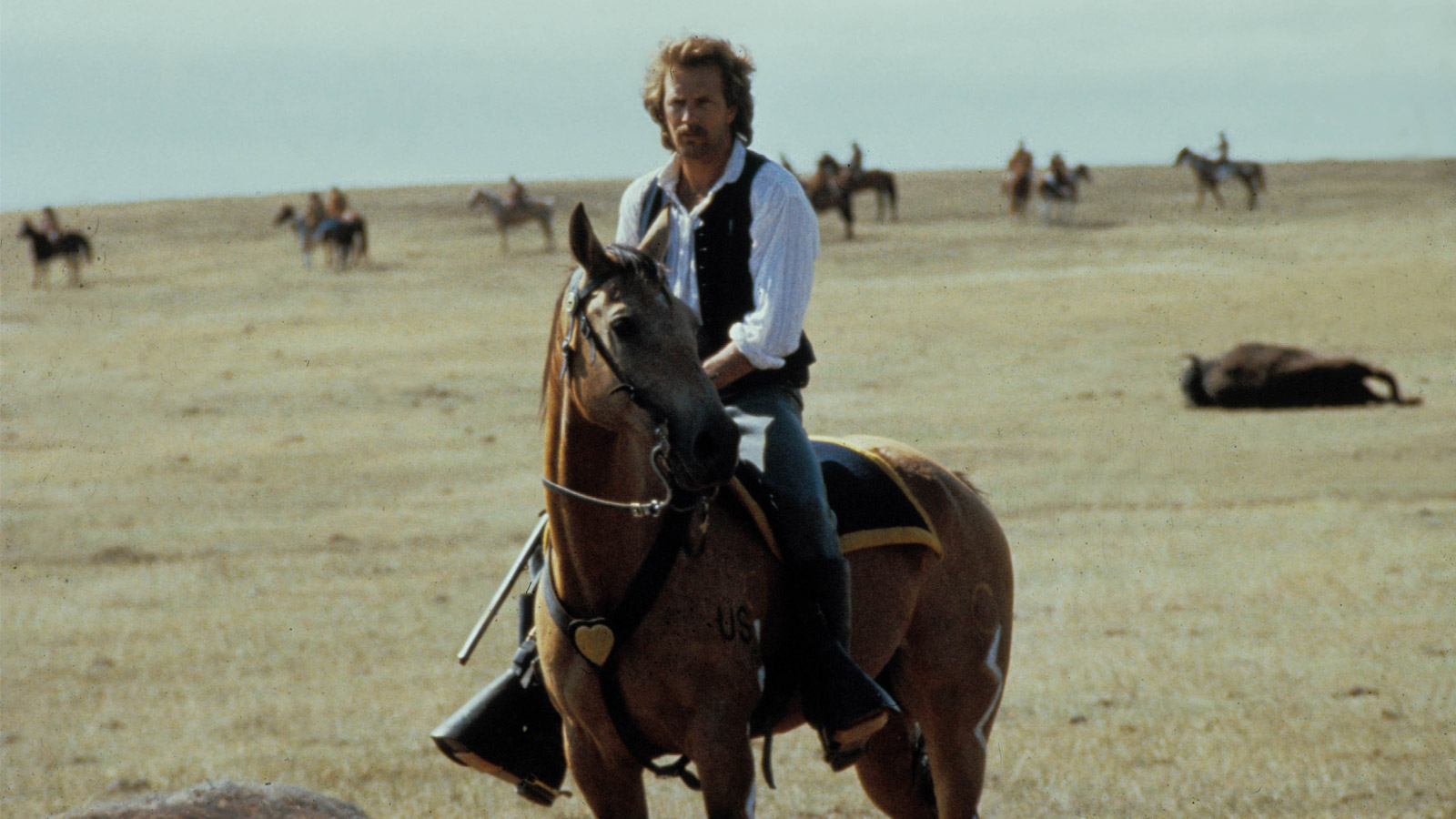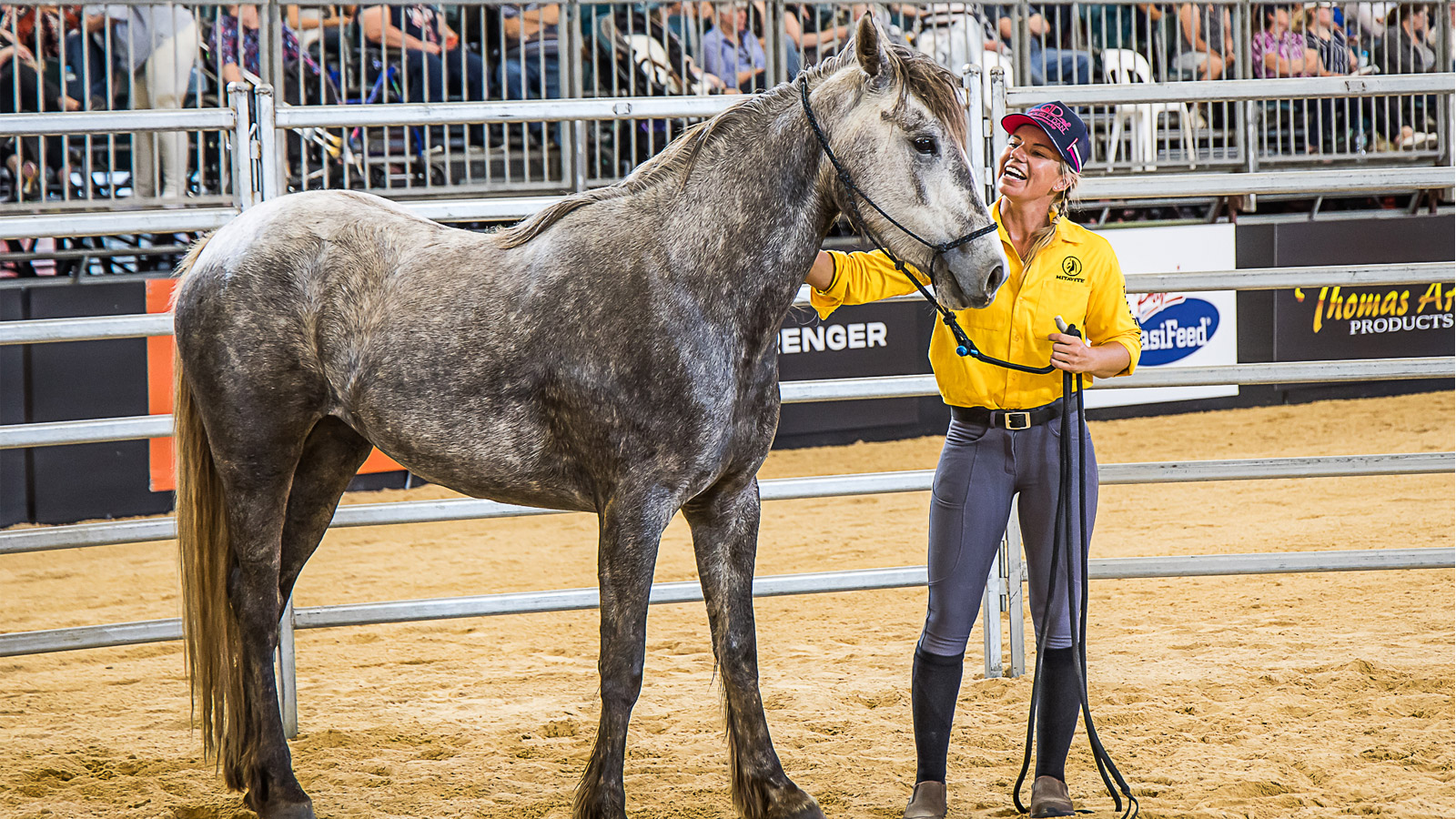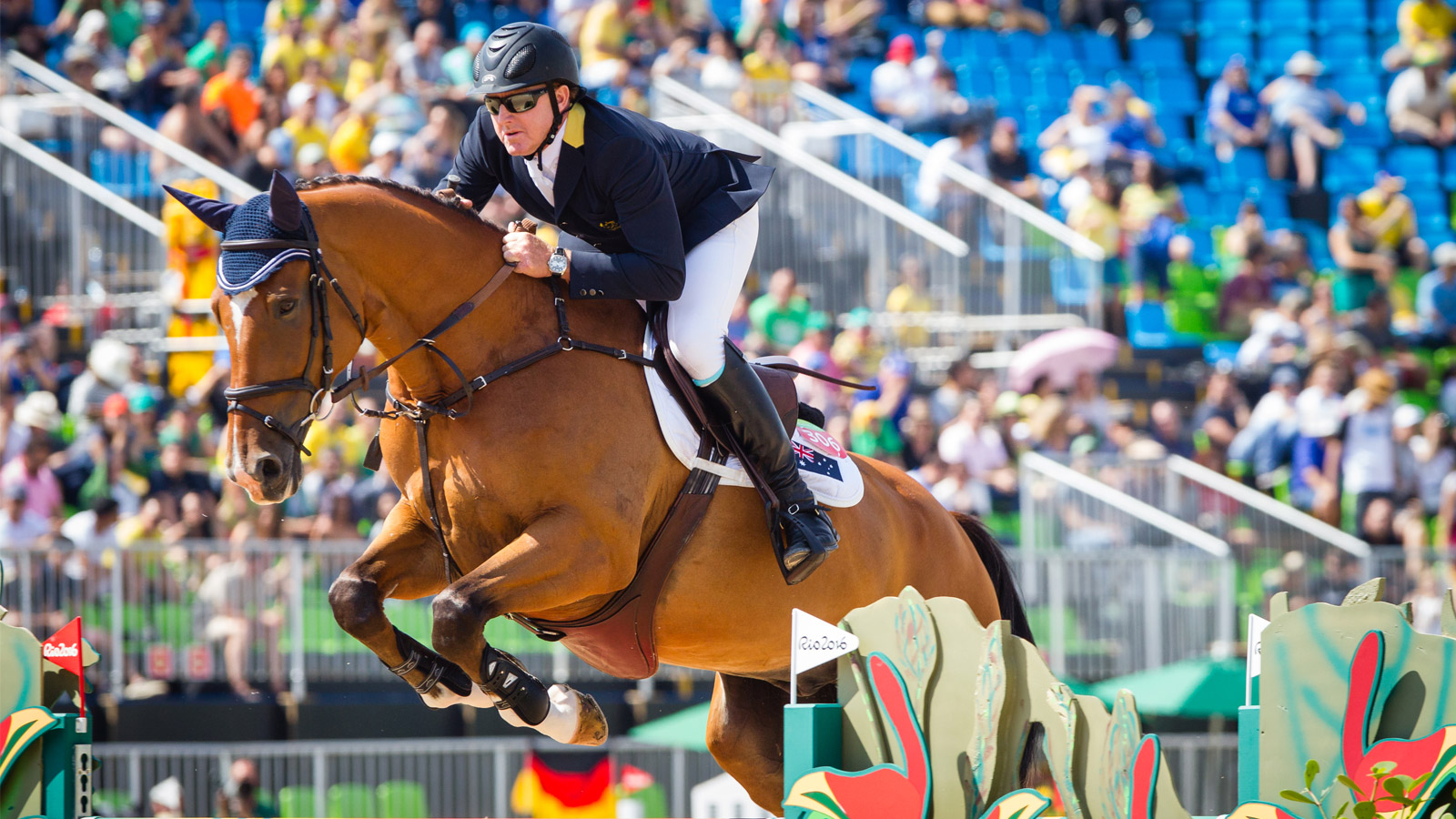Kevin Costner felt he was destined to make an epic western. After the surprise success of Dances With Wolves, which he directed and starred in, he revealed that he always wanted to be a cowboy.

Set in the 1860s during the final years of the Indian wars, ‘Dances With Wolves’ tells the story of a disillusioned union soldier, Lieutenant John Dunbar, played by Kevin Costner. Image supplied.
Dances With Wolves (1990) was the first western to receive a Best Picture Oscar since Cimarron in the 1930s.
Set in the 1860s during the final years of the Indian wars, it tells the story of a disillusioned Union soldier, Lieutenant John Dunbar, played by Kevin Costner, then in his 40s, who these days can be seen in Yellowstone. Dunbar is transferred to the farthest edge of the western frontier after a brutal Civil War battle. Isolated and lonely, he finds himself befriending animals and ultimately a Sioux tribe. The film clocks in at three hours long and includes a cast full of unknown Native American actors speaking a rarely heard language.
Directed by Costner, it ended up winning seven Academy Awards. One was awarded to South Australian Dean Semler for Best Cinematography. Semler claimed the most satisfying moment on the picture was the filming of the stampede involving 3,500 buffalo. “We strategically placed half a dozen or so cameras, taking care to protect the crew, and then hoped that the beasts would follow a certain route through the valley – and they did. It’s one of my favourite films.” And he’s been shooting pictures since the early ’70s.
Semler first had an inkling about how important his Oscar win was to his native Australia when he was on a night flight to Sydney and the attendant asked him if he had it with him and if he would mind showing it to the passengers!
TRIVIA
Semler’s daughter was a wrangler on the film. She broke both of her wrists when the horse she was riding suddenly spooked and threw her.
Dances With Wolves also marked a victory for its major equine star, Plain Justin Bar, playing the AQHA buckskin ‘Cisco’, who received billing in the end credits. Rusty Hendrickson, head wrangler and trainer, had found the seven-year-old gelding in Idaho and chose him for his colour, (Costner had insisted on a buckskin), conformation and temperament. “He had a certain presence,” he said, “was interested in people and not afraid of things.”

The movie ended up winning seven Academy Awards.
“(Li’l Blue McGoo) had an interesting,
yet disturbing, back story.”
He was doubled by another Quarter Horse named Buck. When Cisco is ambushed and killed, he is doing a lay-down; stage blood and special effects were used for the bullet holes.
Kicking Bird, played by actor Graham Green, rode a pure white Indian pony with blue eyes, whose real name was Li’l Blue McGoo. In general, blue eyes don’t suit movie horses as they can’t handle the lights for very long. Fortunately, Li’l Blue didn’t have to stand for many close-ups so was fine.
This animal had an interesting, yet disturbing, back story: When the film finished he was sold to a person who wanted a trophy horse, but Blue was severely neglected. When he was finally saved in 2002 by Orphan Acres, a rescue centre in Idaho, he was very underweight, covered in sores and had a jaw abscess. After he regained his strength, Blue was put on an exercise program involving treadmills, walking, and being led on trail rides.
His health improved but never completely recovered due to the long-term neglect from the previous owner. His eye was removed in 2008 due to cancer, but he continued to enjoy his time with the other horses. He died in 2014. The centre said it had been an honour to provide the love and attention to Blue who was allowed to age gracefully.
For the film these leading horses had various patterns applied to their bodies. Cisco’s legs had zigzags representing lightning bolts believed to give the horse greater speed. ‘Blue’ had a ring painted around his eye, meant to enhance his vision, and blue patches with white dots on the shoulder and rump representing buffalo tracks, indicating the horse had participated in successful buffalo hunts in the past.

Kevin Costner stars as John Dutton in ‘Yellowstone’. © Paramount Network.

Kevin Costner, who plays Lieutenant John Dunbar, with the buckskin Plain Justin Bar, who played Cisco. Image supplied.

The white Indian pony, played by Li’l Blue McGoo. Image supplied.

Horses on set of ‘Dances With Wolves’. Image supplied.

The bison Cody waiting for his cookies. Image supplied.

Kevin Costner behind the camera. Image supplied.
TRIVIA
Graham Greene, the actor playing Kicking Bird, an arthritic holy man, put slices of Italian sausage in each moccasin causing to him walk in an awkward manner.

The bison Cody waiting for his cookies. Image supplied.

Kevin Costner behind the camera. Image supplied.
Costner insisted on doing most of his own stunts, including shooting his gun without holding the reins and galloping bareback amidst stampeding beasts. These animals came from a private ranch, others were mechanical mannequins mounted on dollies and some were made of foam latex.
“I think I rode my first horse when I was seven,” he later said. “I’m pretty sure part of me always wanted to be a cowboy. Later, when I became an actor, it was pretty obvious I would make westerns.”
There were also two trained buffalo, one belonging to singer Neil Young named Mammoth, and Cody, from a meat manufacturer, which was keen on Oreo cookies. Mammoth was supposed to be wounded and wranglers clipped arrows to his coat and sent him running past the camera. Cody’s fondness for Oreos made him a natural for the scene where a buffalo charges a stranded young brave. It looks like he’s heading straight for the youth when, in fact, he’s charging a pile of cookies.
There was a scene where, supposedly, a liver was cut out of a buffalo and handed to Dunbar to eat raw – it was in fact cranberry jelly. And then there was the wolf called ‘Two Socks’. In reality, there were two of them played by ‘Teddy’ and ‘Buck’, one of which had to have milky-white socks painted on him. The footage where Dunbar plays with the wild animal and the tribe gives him the name ‘Dances With Wolves’ is mostly done by the wolf trainer with stuffed meat in his pockets to hold the wolves’ attention.
After filming they were permanently kept in California at Working Wildlife, an animal sanctuary in Ventura County. Both appeared in the film’s credits.

Dances With Wolves’ grossed more than $400 million dollars. Image supplied.
TRIVIA
Costner confessed at a 2009 film festival appearance that he hated the wolves. “They didn’t take direction well, causing the film to run weeks behind schedule.”
Dances With Wolves grossed more than $400 million and in 2007 was selected for preservation in the US National Film Registry by the Library of Congress as being “culturally, historically and aesthetically significant”.
It can be seen on DVD and on various streaming services. EQ
YOU MIGHT ALSO LIKE TO READ:
Carl’s Cameo in ‘The Equestrian’ – Equestrian Life, November 2022
The Mask of Zorro – Equestrian Life, October 2022
Rudolph Valentino’s Arabian Affair – Equestrian Life, September 2022
The Little Grey Donkey That Could – Equestrian Life, August 2022
Inside the Horse Whisperer – Equestrian Life, July 2022
The Brilliance of ‘Breaker Morant’ – Equestrian Life, June 2022
Young Star’s Velvet Touch – Equestrian Life, May 2022
Spielberg’s Equine Epic – Equestrian Life, April 2022
The Last Duel: Lost if Translation – Equestrian Life, March 2022
When Harry Met Snowman – Equestrian Life, February 2022
‘Troy’ – Bigger Than ‘Ben Hur’! – Equestrian Life, January 2022
‘Seabiscuit’ Takes the Cake – Equestrian Life, December 2021
Redford Turns up the Voltage – Equestrian Life, November 2021
A Zebra Earns its ‘Racing Stripes’ – Equestrian Life, October 2021
The Magic of the Black Stallion – Equestrian Life, September 2021
It Takes a Village to Win a Horse Race – Equestrian Life, August 2021
Fury, A Stallion with Standards – Equestrian Life, July 2021
‘Concrete Cowboy’ Sets the Record Straight – Equestrian Life, June 2021
My Friend Flicka – Equestrian Life, May 2021
The Little Horse That Could (Jappeloup) – Equestrian Life, April 2021
Viggo Mortensen Saves the Day! (Hidalgo) – Equestrian Life, March 2021
Meet Phar Lap’s Double, Towering Inferno – Equestrian Life, February 2021
Black Beauty Rides Again – Equestrian Life, January 2021
The Secrets Behind ‘Australia’ – Equestrian Life, December 2020
From Roy Rogers to Saddle Clubbing, the Horses Starred – Equestrian Life, November 2020
Poetry Jumps to Life & Yes, Horse Can Talk! – Equestrian Life, October 2020
When Your Co-Stars Are Real Animals – Equestrian Life, September 2020
Horsing Around on the Big Screen – Equestrian Life, August 2020




